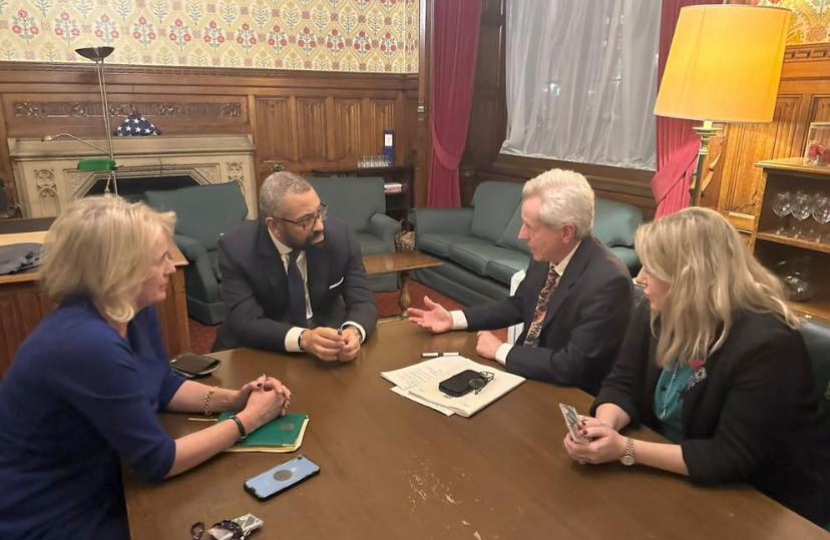Strikes can cause huge disruption to people lives; this is why the government has put in place new legislation to make sure that there is a minimum disruption to public services on strike days. This follows similar laws in other countries such as France, Italy, and Spain. The right to strike is important and is maintained.
The Bill setting the framework of the law was approved by Parliament earlier this year, despite opposition by both Labour MPs. Parliament has now been looking at the sector-by-sector details. I joined a committee of MPs to scrutinise the proposals on transports. This sets out that on strike days, train operators should run at least 40% of total timetabled services.
Chelmsford is the busiest two platform train station outside of London, usually many thousands of people use trains from our station every day, including many young people travelling to and from school. It seems totally reasonable to me to require this level of service on a strike day. But again, every Labour MP voted against, and the Lib Dems were nowhere to be seen. Fortunately, the Conservative majority voted the proposal through. The details of Minimum Services were also set for the Health Service.
Last year, 25 million school days were lost to strike action. There were 10 days of strikes in schools and even more in colleges. Before setting a minimum disruption level for education, the Secretary of State has launched a consultation to make sure that the voices of children and families can be heard. If you would like to take part in the consultation you can do so here. Minimum service levels in education - Department for Education - Citizen Space
I met the Regional Schools Commissioner and the Head of Education from Essex County Council to discuss schools in Chelmsford. We spoke about the need for increased facilities for children with Special Educational Needs, several schools have told me that they think it would be helpful to have an increase in specialist units within mainstream schools to support children with autism, ADHD, and other needs.
Parliament has also started work on a new Criminal Justice Bill. Crime has reduced by 50% since 2010 and there are record levels of police officers. The Bill will take further steps such as extending sentences for the most dangerous criminals, giving the police stronger powers to tackle knife crime, drugs and anti-social behaviour as well as measures to tackle child sexual abuse, the sharing of intimate images and child grooming.
Alongside a small group of other MPs, I met with the new Home Secretary, James Cleverly to discuss the issue of Spiking. Spiking is hideous. People who have been spiked can become victims of sexual abuse, rape, theft, or other crimes. Spiking is a criminal office, but this is set out in ancient legislation on poisoning that dates to Victorian times. We would like measures added to the new Criminal Justice Bill that update and modernise the law and create a specific named offence on spiking. This will act as a deterrent and help to keep people, especially women, safe.
In Chelmsford, I joined our Police Fire and Crime Commissioner, Roger Hirst to meet with local police in the city centre. Reports of crime are down 6.5% in Essex this year and reports of anti-social behaviour in the Chelmsford policing district are down by over one third. Our local police have been particularly active in the city centre this autumn and have made over 30 drug related arrests.
After a walk about with the police, Roger and I visited popped into The Range with one of our local PCSOs. There was a great party atmosphere. Hundreds of people from across Chelmsford and further afield had come to visit this huge new store in the High Street on its opening day. Sixty-five new staff are already employed in the store, and there are more job opportunities available. The staff had worked incredibly hard to be ready for the grand opening. It is great for businesses across our high street, and I would like to thank everyone involved.
There was also a beautiful atmosphere at the Cathedral for the annual carol service for the Royal Association of Deaf People. This is always one of my favourite events in the run up to Christmas. Children from schools across Essex use sign language to tell the messages of carols old and new. I am proud to have helped campaign for new GCSE which is being introduced on British Sign Language. This will help break down barriers and enable more inclusivity for deaf people and those with hearing loss.
I am travelling to represent the UK Parliament at the annual COP conference on Climate Change next week. I do apologise if it takes me longer than normal to respond to emails and other inquiries.





